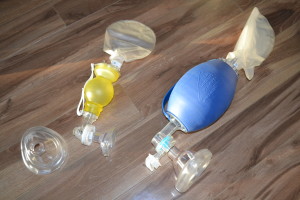Honolulu CPR is a training provider of CPR programs in Honolulu, Hawaii. The programs

at Honolulu, CPR is very high quality because they are only taught by certified instructors, with all of the program curricula using guidelines from the American heart association. There are three programs under Basic Life Support and two programs under Advanced Life Support available. Re-certification is also offered by this provider, so rescuers looking to renew their certificates can do so with us.
Basic Life Support
BLS programs are emergency CPR programs that are focused on teaching the trainees how to manage a cardiac emergency in the absence of adequate medical attention. BLS is usually used to describe the measures taken before the EMS arrive. Skill-building is an important part of BLS training, with students practicing chest compressions and rescue breaths on high-tech training mannequins. Trainees are also taught how to use AEDs – automated external defibrillators.
- Heartsaver CPR and AED – This is a general public class that runs for four hours. It includes one-person CPR, first aid, and AED in the training curriculum. The certification post-test is optional.
- Heartsaver CPR and AED (C) – This is a healthcare provider version of the basic CPR program for the public. It also focuses on one-person CPR only but runs longer for 4.5 hours. The post-tests are manadatory to get certified.
- Basic Life Support – This is a healthcare provider class as well, but teaches both one-person and two-person CPR rescue. First aid and AED training is still included in the program, along with an introduction to the 2010 BLS guidelines from the AHA. Re-certification is available and is four hours.
Advanced Life Support
While BLS training teaches management in absence of or before medical help arrives, ALS is medical CPR management for cardiac arrest once the victim is brought to a clinical setting. Basics are still included in the ALS classes but more focus is given on proper use of CPR equipment and correct indication and dosage of medication.
Pre-requisities: BLS for HCP training certification, a passing score on the pre-test (skills and written tests, similar to the post-tests)
- Advanced Cardiac Life Support (ACLS) – ACLS is a two-day program, 16 hours in total. It teaches CPR management for adult victims, focusing on bag valve masks and ET tubes for adults and adult dosages of medication. Re-certification is available, runs between five and six hours.
- Pediatric Advanced Life Support (PALS) – PALS is also a two-day program, 14 hours in total. As opposed to adult management in ACLS, PALS is for management of pediatric victims. Pediatric cases are patients younger than 18 years old. While CPR for adults doesn’t differ much from CPR for older and bigger children, CPR is very different for infants and younger children. Assessment and dosage of medication is also different for pediatric patients. Re-certification is available, runs between six and eight hours.
Certificates for CPR training programs in Honolulu
Certification is awarded once the students passes the post-tests given at the end of training. Certificates are valid for a period of two years, after which they will expire. They can be renewed for an additional two years in re-certification classes as long as the certificates are still valid when the rescuer applied for renewal.
